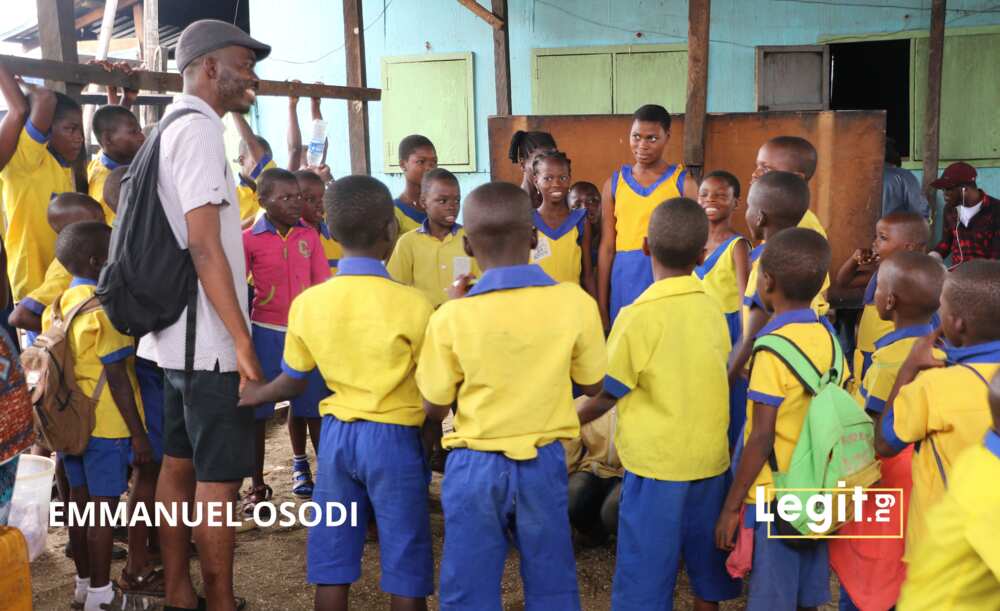Education Experts Reveal Why Nigeria is Experiencing Low Learning Outcomes
- Experts across the country have called for strategic approaches to improving learning outcomes in school children
- The experts warned that 70 per cent of the children who are currently in school are not even learning
- According to them, there is also a need for all stakeholders in education to work towards ensuring teachers' development bearing in mind, the importance of training and retraining school instructors
PAY ATTENTION: Click “See First” under the “Following” tab to see Legit.ng News on your Facebook News Feed!
Education experts in Nigeria have warned that the country is experiencing a decline in learning outcomes among children between 3 and 10 years old.
Speaking at a media dialogue organised by UNICEF and the Child Rights Information Bureau of the federal ministry of information, Dr Geoffery Njoku said addressing the crisis in Nigeria's education must start with ensuring that the country is on the right path with foundation literacy and numeracy.
Njoku, a UNICEF communication specialist said while Nigeria has an alarming record of 10.5 million out-of-school children, 70 per cent of those who are in school are not learning or do not know anything.

Source: UGC
A recent World Bank research shows that Nigeria is experiencing deficiency with 70 per cent of children below the age of 10 years - who are in school but cannot understand simple sentences or perform basic numeracy tasks.
PAY ATTENTION: Install our latest app for Android, read best news on Nigeria’s #1 news app
The report also said that 69 per cent of teachers in primary schools across Nigeria are unqualified to be in the classrooms.
Highlighting some of the reasons for the low learning outcome, Njoku said Nigeria has teachers who do not understand the basics of some of the knowledge expected to be imparted to the school children.
He added that several of these teachers lack the prerequisite training required for teaching process.
His said:
"The teachers need to be trained and re-trained; we have teachers failing primary 3 exams, so what are we doing.
At this point, if we need to change the school curriculum then let's do that to achieve improved learning for the children."
Calling for government, partners and stakeholders' involvement to get the ball rolling on foundation literacy and numeracy, Njoku said that the success of the Sustainable Development Goals (SDG), is tied to the implementation of the Child Rights Act.
He added:
"This is because if we don't get focus on getting the child rights right, it is going to be a hollow chase because all the SGDs are all intertwined with child right."
Unprepared workforce and inadequate teaching resources
Making a presentation on Foundation Literacy and Numeracy, UNICEF's education specialist, Manar Ahmed, expressed worry over what she described as an unprepared workforce laden with insufficient physical resources in schools across the country.

Read also
Teachers who can't write their names end up spreading ignorance to school children, Adams Oshiomhole warns
Ahmed said the above listed and near-absent school readiness are the major reasons behind the low learning outcomes in primary schools.
She noted that Nigeria's problem is not a lack of policies but the proper implementation of the available policies by relevant agencies.
Ahmed also stressed the need for the country to put in more effort to ensure that programs are implemented to improve the learning process among school children.
She said:
“Goal four of the SDGs is to ensure inclusive and equitable quality education that promotes lifelong learning and all children by age 10 must know how to read and solve numeracy.
“It is not that Nigeria lacks the right policy but Nigeria is facing a staggering crisis with learning outcomes being one of the lowest."
“So, 70 per cent of the children in school are not achieving basic foundational skills."
Efforts by UNICEF in achieving better learning outcomes
Also speaking, the chief of the UNICEF field office in Kano, Rahama Farah, revealed that the international organisation and the federal government have continued to collaborate with the aim of improving the outcome of basic education in the country.
Farah, who was represented by the officer-in-charge, UNICEF Field Office, Kano, Elhadji Diop, said a lot of work needs to be done to improve the learning process and have better outcomes among school children.
He said:
“To address the challenge, achieving basic learning outcomes at the foundational level of education is key. It is clear that to improve learning outcomes in Nigeria, achieving basic foundational skills at that level of learning cannot be overemphasised.
“So we need to mobilise stakeholders to join forces in addressing the challenges of eradicating learning poverty in the country."
“UNICEF is already supporting the Government of Nigeria to improve Foundational Literacy and Numeracy through tailor-made, teaching-learning practices, such as Teaching at the Right Level (TaRL) and Reading and Numeracy Activities (RANA). A lot still needs to be done to scale-up Foundational Literacy and Numeracy in Nigeria.”
Teachers who can't write their names end up spreading ignorance to school children, Adams Oshiomhole warns
Nigerians across the country have been urged to prevail on their governors to prioritise education in their states.
This advice was given to Nigerians by a former governor of Edo state, Adams Oshiomhole during an event in Abuja on Wednesday, March 30.
According to the former governor, there is a need to train, educate and skill up Nigerian youths for possible development.
More home staying for Nigerian students as SSANU, NASU declare comprehensive strike
SSANU and NASU had on Friday, March 25, declared a comprehensive and total strike across Nigerian universities.
Both unions in a joint memo on Friday stated that the industrial action to begin on Monday, March 28, will come with no guise of concession.
No doubt, this will compound the already existing issue between ASUU and the federal government.
Source: Legit.ng





